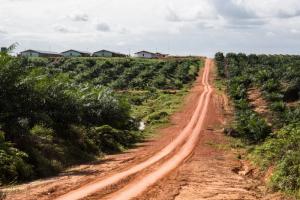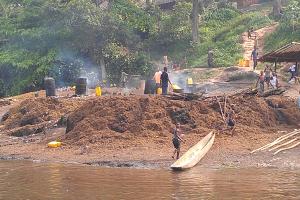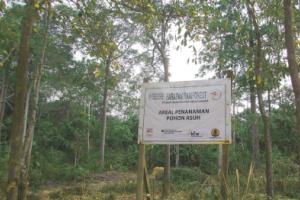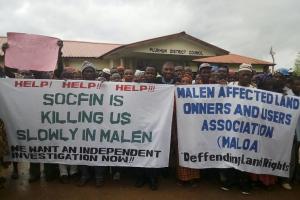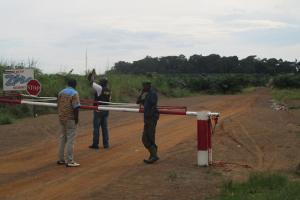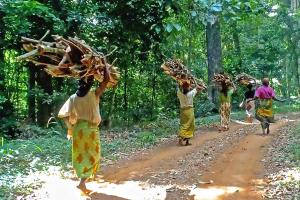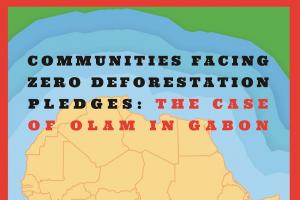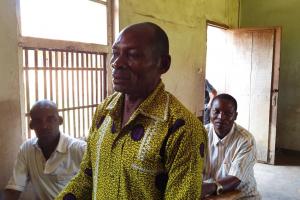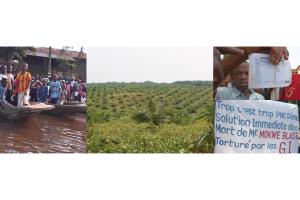Palm Oil
The oil palm tree is native to West Africa. It is an important tree for forest-dependent communities, their cultures and their economies. However, large-scale oil palm monocultures for industrial production (oil and agrofuels) have been driving deforestation and land grabbing in Southeast Asia. More recently, oil palm monocultures are also driving destruction in Africa and Latin America.
More than 100 years ago, lands were stolen from communities in DR Congo for industrial oil palm production. Since 2009, those lands are under control of the company FERONIA.
Back in 2004, conservation NGOs and the Indonesian Ministry of Forestry pioneered with a model called Ecosystem Restoration Concessions. This article takes a closer look at this model in the context of new and old threats to forests, and the global push for “forest restoration”. (Available in Indonesian).
What are the experiences of communities living inside or adjacent to the plantation areas of companies with “zero deforestation” pledges? How can these companies continue expanding without deforesting in densely forested countries?
Download the publication.
Groups call for the immediate release of villagers in the DR Congo imprisoned for over 5 months on false charges related to a land conflict with the Canadian oil palm plantation company Feronia Inc. Sign the letter!!!
Community leaders and traditional chiefs in areas affected by the plantations of Canadian company PHC-Feronia in the Democratic Republic of Congo (DRC) continue to suffer all kinds of massive human rights violations.
